יִתְרוֹ [Yitro], the Hebrew name of Jethro, is mentioned several times throughout the book of Exodus. However, there is some potential confusion regarding his relationship with Moses. I've captured the following details from Scripture (in parashah Shemot and other passages) to shine some light on this enigmatic individual.
Names of Yitro in Scripture
Several verses provide insight into who Yitro was and the various names that Scripture uses for him.
In Exodus 2:15-22 we see the "priest of Midian" had seven daughters who Moses helped.
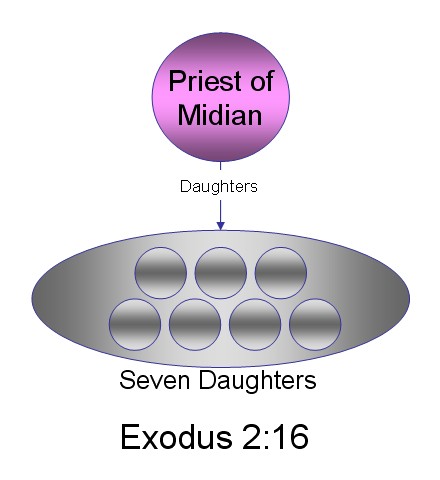
In verse 18, their father is identified as "Reuel" (shepherd of G-d).
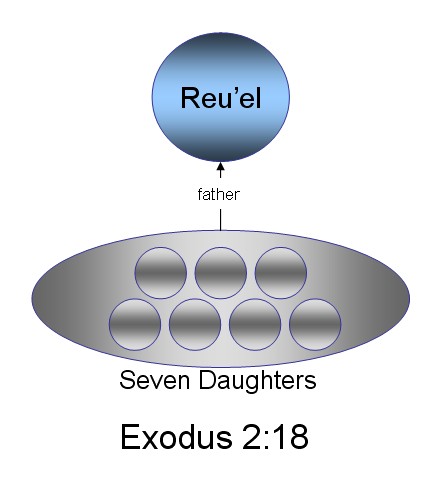
It may be possible at this point to assume that Reuel and "the priest of Midian" are the same.
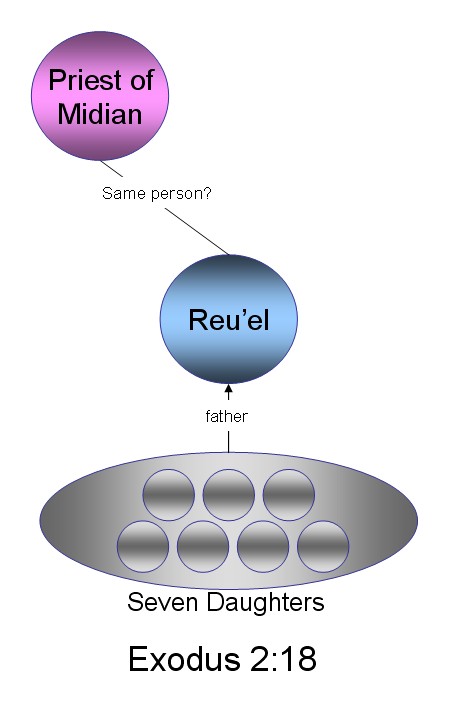
who later gives his daughter Tzipporah (Zipporah) to Moses in marriage (verse 21).
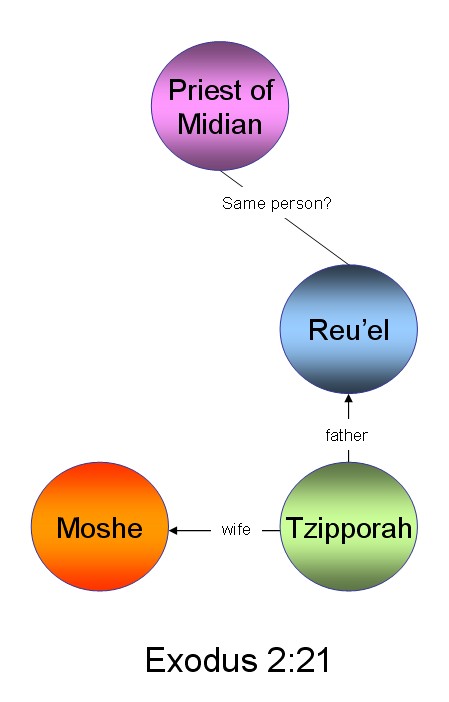
In Exodus 3:1 and Exodus 18:1,2,5, we see Yitro identified as "the priest of Midian" as well as Moses's chotan.
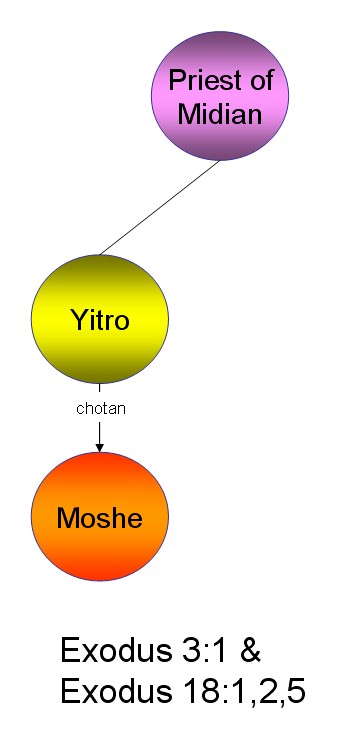
חֹתְנ֖ [chotan {strongsH}Strong's #2860{/strongsH}] is found 43 times in 41 verses of the Tanakh. Twenty-one of those times, it is translated as "father-in-law". Nine times it is translated as "son-in-law". Taken literally, the word means "a male relative by marriage".
Tzipporah uses the word to describe her husband, Moses:
Then Zipporah took a flint and cut off her son's foreskin and threw it at Moses' feet, and she said, "You are indeed a bridegroom of blood to me." (Exodus 2:15-22)
The word is a generic term for any male relative by marriage.
Here is a composite of the information we have thus far:
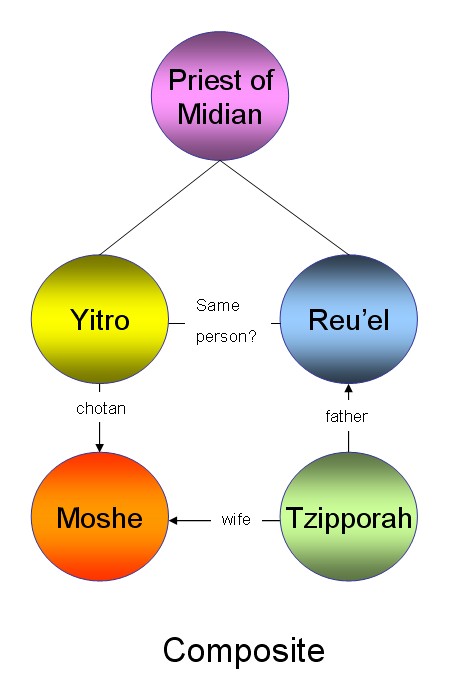
In Exodus 18:6, we again see these relationships restated: Yitro is the priest of Midian; he is Moses' chotan, and Zipporah is his wife:
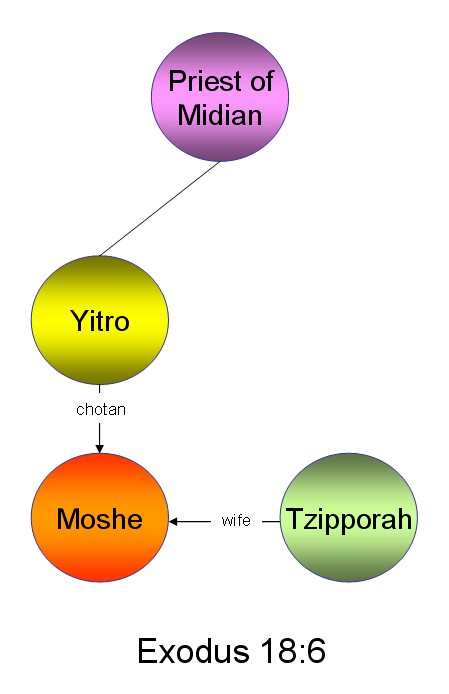
Exodus 4:18 and Exodus 4:18 again reiterate Yitro as Moses's chotan and gives an alternate name to Yitro: Yiter.
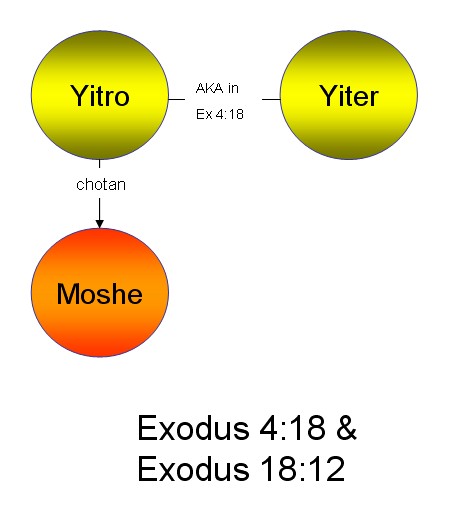
Numbers 10:29 provides one of the possible keys to understanding Moses's relationship with Reu'el:
Numbers 10:29
Then Moses said to Hobab the son of Reuel the Midianite, Moses' father-in-law, "We are setting out to the place of which the LORD said, 'I will give it to you'; come with us and we will do you good, for the LORD has promised good concerning Israel."
Unfortunately, this verse is ambiguously constructed. For example, does the descriptor of chotan apply to Reu'el:
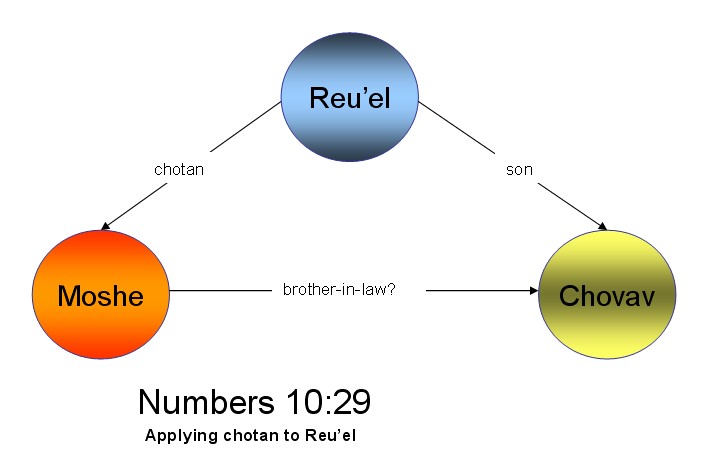
Or Chovav?
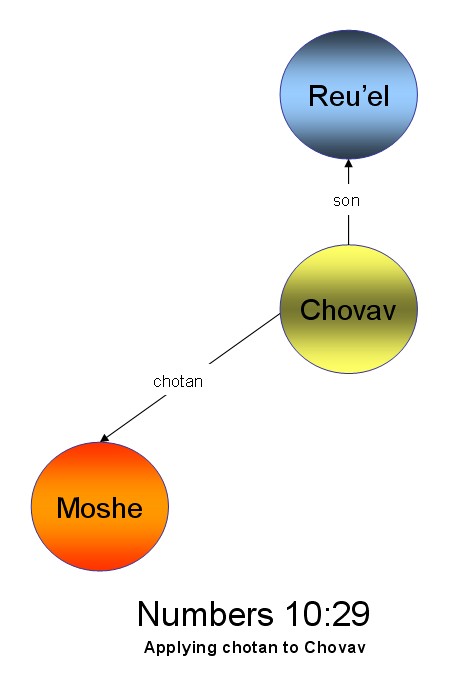
In Judges 4:11, we see Chovav [Hobab] described as a chotan:
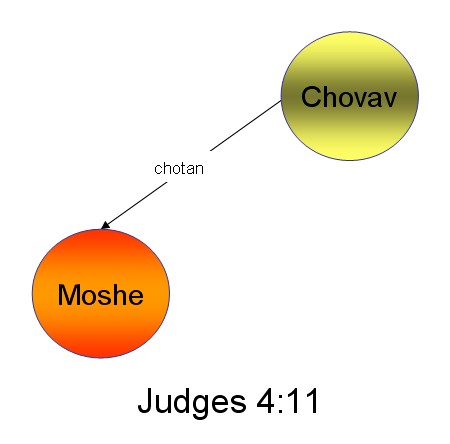
Here is a summary composite of the information above. In it, I've used the flexible word av (father) in one of its variations: grandfather. Also noted is the possibility that Chovav and Yitro are one in the same person:
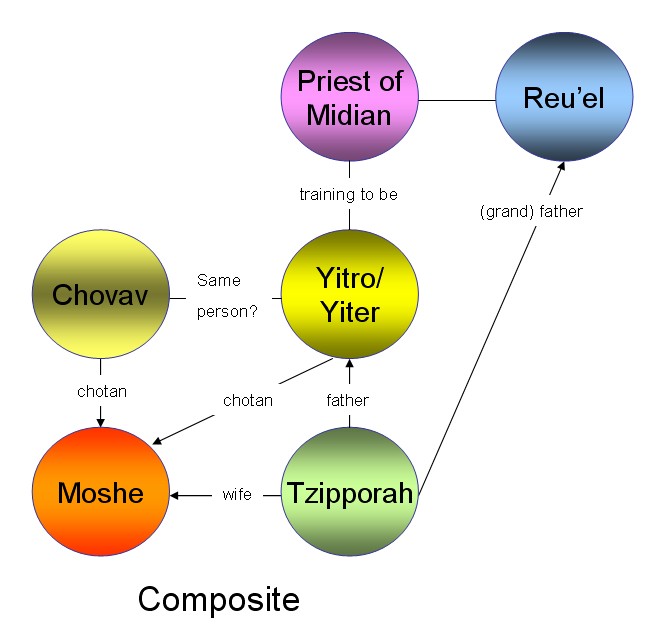
Whoever he may be, Yitro is also mentioned by name in the Midrash.
Yitro in the Midrash
In a "Midrash and Method" article entitled "What's in a Name?" Dr. Meir Levin notes that Yitro had seven names according to the Midrash:
Yisro had seven names : Yeser [Yiter], Hovav, Reuel, Chever, Putiel and Keni. Yeser because he added a section to the Torah. Yisro because he became outstanding in good deeds. Chovav for being beloved by G-d. Reuel because he was, as if a friend to G-d. Chever because he became an associate to G-d. Putiel because he abandoned idolatry. Keni because he was zealous for Torah and acquired Torah.1
- Yisro [Yitro by an alternate pronunciation] (first mentioned in Exodus 3:1) means "his excellency". This is likely a name in the form of a title rather than a proper name.
- Yeser [Yiter by an alternate pronunciation] (first and only used in Exodus 4:18) means "surplus" or "excellence".
- Chovav (first used in Numbers 10:29) means "cherished".
- Re'u'el (first used in Genesis 36:4 but used for Yitro in Exodus 2:18) means "friend of G-d".
- Chever (first used in Genesis 46:17 but likely used for Yitro in Judges 4:11) means "community".
- Puti'el (first and only used in Exodus 6:25) means "contempt of god" (possibly describing his contempt of the pagan god he once followed).
- Keni (first used in Genesis 15:19 but used for Yitro in Judges 1:16) means "possession" or "purchase". Easton's Bible Dictionary notes that Yitro was of the Kenite tribe (Judges 1:16) and is also called a Midianite (Numbers 10:29) and states, "hence it is concluded that the Midianites and the Kenites were the same tribe". They are last mentioned in Scripture in (1 Samuel 27:10).
